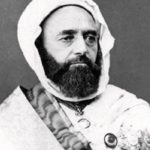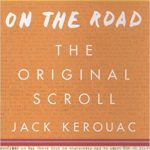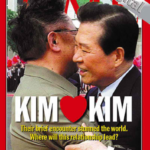An Emmy award-winning writer and producer, Peter Greenberg is the Travel Editor for NBC’s Today Show, CNBC and MSNBC, a best-selling author, and host of the nationally syndicated Peter Greenberg Worldwide Radio show. Greenberg is also contributing editor for America Online (AOL) and Men’s Health magazine, a contributor to The New Yorker, and a frequent guest on ABC’s Oprah Winfrey Show and The View.
Peter is also author of the New York Times best-selling series, The Travel Detective, which uncovers secrets the airline, hotel, cruise and rental car industries don’t want consumers to know. His new book, The Complete Travel Detective Bible, is available from Rodale Books. This ultimate “physician’s desk reference” for travelers provides essential information and answers the questions, anxieties and concerns of seasoned and novice travelers alike. Peter’s other books include: Flight Crew Confidential
, Hotel Secrets
, and Traveler�s Diet: Eating Right and Staying Fit on the Road
.
How did you get started traveling?
I got started traveling at the age of six months. My parents put me on a plane, and in fact I still have a certificate that was signed by the flight crew — it made me the first member of the American Airlines Sky Cradle Club. So I guess I started early.
When I went to the University of Wisconsin as an undergraduate I started traveling more than ever, because I was working with the school paper. We took a world-view of things, so I flew all over the world covering stories when I was in college. By the time I was a junior, I had actually been hired by Newsweek as a correspondent. They had me going to Washington, DC a lot, covering the anti-war movement — and then when I graduated they sent me out to the West Coast as a correspondent based in Los Angeles. I was always the guy with a suitcase in the trunk of the car, because I was always the first to the scene of something — that ranged from Patty Heart to Howard Hughes to Vietnam and Watergate, you name it.
It dawned on me from a very early point in that career that nobody was really covering travel as news. In those days we had Western Airlines and Continental Airlines based out in LA, so I figured I’d better learn the process of travel. I used my access as a journalist to get thoroughly trained in the flight simulators of these airlines — I also did the same thing with the Coast Guard, as a captain — so that I could understand the process. Once I could understand the process, then I could basically try to explain everything to my audience.
How did you get started writing?
My writing career got started as a freshman at the University of Wisconsin. In a campus of 33,000 students I had to try and find an identity. I was told I basically had two choices: I could try to pledge a fraternity, or I could join the student paper. So I walked down fraternity row one day, took one look at that, and ran to the student paper.
To give you an idea of how politically unconscious I was, that was the day of the big Dow Chemical riots protesting one of the big war contractors during the Vietnam War, and 165 people were already in the hospital that day from a sort of police riot. I walked into the student paper, which was filled with tear gas and broken windows, and I said, “I’m here to join the paper.” They looked at me like I was from another planet and said, “Well cover this, since everybody else is in the hospital.” So I wrote a story, and it was probably the worst piece of journalism you’ll ever read — it didn’t have a beginning, a middle, or an end — but they printed my name, and they ran it. I got hooked, and that’s how I got started.
What do you consider your first “break” as a writer?
My break as a writer was the University of Wisconsin, because at that time the entire focus of media in this country was on the campus revolts. So I did two or three Newsweek cover stories when I was still an undergraduate. That was my break — I owe everything to that school, that experience.
Of course my professional professional break was being the Newsweek West Coast correspondent for seven years, both in Los Angeles and San Francisco.
As a traveler and fact/story gatherer, what is your biggest challenge on the road?
If you’re talking just travel writing, it’s to make sure that people share my view that travel is news. It’s not promotion. It’s not marketing. I have a complete aversion with words that end in the letters “st” — “best,” “greatest,” “most,” “finest,” “loveliest” — you know, brochure language. So I’m always fighting to get good stories, because the stories that are usually given to me are overly one-dimensional and overly promotional.
What is your biggest challenge in the research and writing process?
The challenges for the travel writing process the same as challenges for writing any kind of story — and that’s to be able to tell a story that has relevance to your audience, that paints a picture, that allows people to know enough information so they can make an intelligent and independent decision based on what you’ve told them. That’s all you can hope to do.
The other challenge is to make sure that you never lose sight of the fact that it’s not the destination, it’s the experience. The destination is incidental to the experience. It’s not the product as much as the process. I truly believe that if you can understand the process, then you’ll appreciate the product. Every hotel wants you to come when they finish building it, and I want to go when they’re building it. I want to see how they made it.
What is your biggest challenge from a business standpoint?
Remember I’m an investigative reporter, and was for Newsweek for many many years, so what I’ve tried to do is apply my investigative reporting techniques to travel. That wasn’t easy to do at the beginning because most travel sections of newspapers were really considered themselves as advertising vehicles. They didn’t look at travel writing as news. The definition of a travel writer when I first started was — with some notable exceptions, including some of the people you’ve already interviewed — an escaped librarian looking for a free cruise. They didn’t have a hard news background, they didn’t approach travel from a journalism point of view; they approached travel from a cheerleader point of view. It’s similar today, but less so because so many editors now are transitioning from that position of being a marketer to being a real journalist, so they understand what their audience really wants. The audience demands it now. The media has actually caught up with the audience.
We live in a world of citizen journalism. We live in a world where everyone has a camera in their cell phone. We have the Internet. We have bloggers. If I write a piece that says the waterfall at Yosemite is so many feet high and I’m off by a foot, I get thirty emails within an hour.
More and more people are embracing the important notion that travel is news, and that the audience doesn’t want me, nor do they need me to tell them that the sun sets nicely in the Bahamas. What they want me to tell them is how — while the sun is setting nicely in the Bahamas, and the airline lost their bags and the hotel has no record of their reservation and the cab driver just took them on a 200-mile ride into town when it should have been 2 — how can I give them the information they need, and the questions to ask, and to whom, so that none of the this stuff happens to them anymore.
We are a nation of travel addicts, and as part of that definition of addict, it also means we get abused. And we come back for more. So that’s really the nature of the beast. More people are traveling now than traveled before 9/11. So we’ve come back with a vengeance, we just want to come back with intelligence.
Have you ever done other work to make ends meet?
Since age 17, this is what I’ve done my whole life — though I’ve done other stuff while I’ve done this.
There was a period of time when, right after I left Newsweek, I produced a number of movies. I also worked in dramatic television at Paramount — if you remember a show called MacGyver, I had a lot to do with that. I also did a show over at MGM called thirtysomething. I have a production company now that does a lot of specials that have nothing to do with travel, for companies like the History Channel, or the Discovery Channel, or PBS. I’m still very active as a producer, but first and foremost it starts on the printed page, as a journalist. In fact, everything I’ve ever produced for TV is based on a story I wrote.
What travel authors or books might you recommend and/or have influenced you?
I can tell you one that had tremendous impact on me. It’s out of print now, but you can probably find it because some of the book aficionados will know it. It was a Somerset Maugham book, called A Writer’s Notebook. He was like the original blogger in this book, because everywhere he went he made observations about the people and the places. Some of these observations were a sentence. Some were two paragraphs, some were eight pages. It was just amazing writing, and I keep that book in my bedroom in Los Angeles, and no matter what page you open, it reminds you of why you do what you do.
What advice and/or warnings would you give to someone who is considering going into travel writing?
We’re all travelers, so my advice is this: Start with something you know better than anybody else. That could be your neighborhood in Queens, it could be a woman who runs a flower shop in Cleveland. The audience always wants you to tell them something they didn’t know, so start with that, don’t get too big, don’t write a piece on “Wonderful Paris” or “Lovely Rome” — that’s not going to do anybody any good.
And then my advice is to follow my own mantra, which is “If it’s in the brochure, I don’t want to know about it.” I’m a contrarian in that way. I’ve even trademarked a show we’re going to do, called Off the Brochure, because I think that’s what people want to know. They can figure out, if they go to Orlando, that they can go to Disneyworld and Universal Studios. OK, now what do you do?
What do you think is your proudest achievement as a travel writer?
I guess my proudest achievement is never taking anything for granted — and realizing I’m going to learn something new every day.
For example, if you do the math, there are about 314 distinct destinations and countries in the world; I’ve been to about 146 of them. That’s 145 more than most Americans, so I’ve already won. But that keeps me going, because I’ve got more than 160 to go.
I’ll never get there, and it’s not a race, but I’m always open to the possibility of at least trying.
What is the biggest reward of life as a travel writer?
The biggest reward of doing what I do is that every once in awhile I get to share it.
Travel is by my definition — and I hope by yours — an experience that is absolutely meant to be shared. And if you’re lucky enough to discover an experience and you get to share it with somebody that you care about — wow, you can’t beat that.





